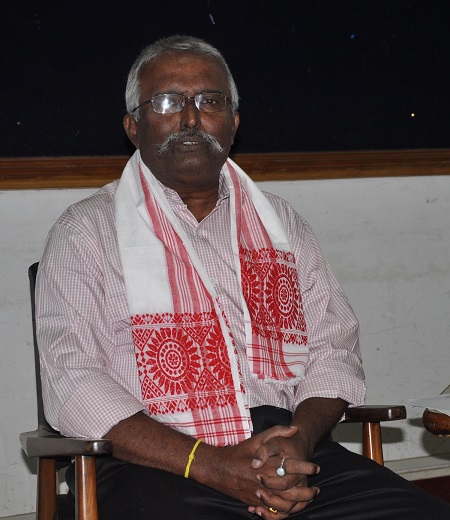Environmental activist prefers non-burning of wastes
Posted on November 1st, 2013
By NJ Thakuria
Guwahati: To deal with the huge volume of garbage produced by every city today, an eminent environmental activist of Assam emphasizes on promoting non-burning technologies. Aashim K Chatterjee, who stronglyopposes the open burning of garbage, argues that the practice can help curbing the level of pollution in the air. Attending a program on October 30, 2013 in Guwahati Press Club, Mr Chatterjee pointed out that the increase of dioxin in the air isbecause of open burning of various wastes that is inviting a number of cancerous diseases to the human health.
He also asserted that the -Ëœwaste which cannot be reused, recycled, or composted cleanly, should be land-filled rather than incinerated as it would help in lesser release of dioxin to the environment-â„¢. Mentionable is that the dioxin is a nomenclature given to a large group of chemical compounds with similar structure those are made up of Carbon, Oxygen, Hydrogen and Chlorine atoms.

-Burning of municipal waste, bio-medical waste, backyard blazing and automobile emissions continue to contribute to the release of dioxin into the environment, which is feared as one of the most common andcausative agents of cancer,- said Mr Chatterjee, who has been experienced in the waste management process for more than a decadenow.
-We are exposed to dioxin through the air that we breathe. The pollutants in the air carry large amounts of it which could target us at any given instance. Hence we must limit its release into theenvironment,- added the activist. The statistics of cancer patients in Assam is the highest in northeast India. According to a list prepared in 2011-2012 by the activist,Assam had 4443 cancer patients followed by Meghalaya with 101 cases.
The other States of the region had less than hundred reported cancer patients as Nagaland had 84, Arunachal Pradesh 65, Mizoram 59, Manipur 38 and Tripura had the lowest of 14 cases.Mr Chatterjee, who continues his effort to generate public awareness on the growing menace of air, water and surface pollution across the region with organizing training, technical knowhow and wastemanagement services to a large number of hospitals in Assam insisted on the strict legislations to be implemented with an aim to curb out the menace of dioxin at the earliest.